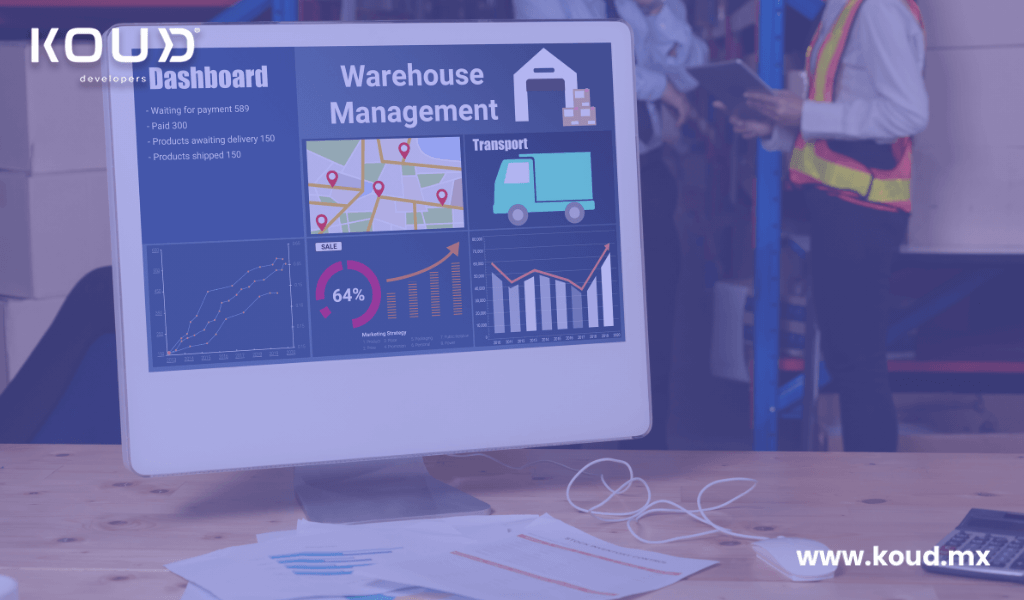Fleet and route management software: innovation in logistics
In a highly competitive environment like logistics, companies are continuously seeking ways to improve operational efficiency and reduce costs. One of the most effective solutions to achieve these goals is implementing route and fleet management software. This type of software not only optimizes daily transport operations but also enhances fleet management and customer satisfaction through faster and more efficient deliveries.
In this article, we will explore how innovation in route and fleet management software is transforming the logistics industry, providing significant benefits in terms of productivity, resource optimization, and cost reduction.
Fleet and route management software: innovation in logistics
1. What is route and fleet management software?
Route and fleet management software is a tool that allows logistics companies to plan, monitor, and optimize their transportation operations. This software uses real-time data, optimization algorithms, and tracking technologies to manage everything from route planning to vehicle maintenance.
The main goal of this software is to maximize operational efficiency by minimizing delivery times, optimizing vehicle usage, and reducing operational costs. This leads to improvements for both the company and its customers.
2. Key features of route and fleet management software
Below are some of the main features this software offers and how they positively impact logistics management:
a) Route optimization
One of the key functions is route optimization. The software uses advanced algorithms to calculate the most efficient routes, considering factors such as traffic, weather, distance, and delivery priority. This not only improves delivery times but also reduces fuel consumption and vehicle wear and tear.
b) Real-time tracking
Real-time tracking allows fleet managers to monitor the exact location of each vehicle on its route. This helps make quick decisions in case of unexpected events, such as delays or route changes, and provides greater transparency to customers who want to know the status of their shipments.
c) Vehicle maintenance management
Preventive maintenance is crucial to avoid mechanical failures and extend the lifespan of vehicles. Fleet management software enables scheduling and controlling maintenance, sending alerts when vehicles need inspections or repairs. This reduces the risk of unexpected breakdowns and improves fleet safety.
d) Performance reporting and analytics
Another important feature is the ability to generate detailed reports on driver performance, fuel consumption, and vehicle condition. These reports allow managers to make data-driven decisions, further optimizing logistics operations and improving overall productivity.
e) Cost control and fuel savings
Route and fleet management software helps reduce operational costs by minimizing downtime, optimizing fuel usage, and improving vehicle efficiency. The data generated by the software can identify excessive fuel consumption patterns, aiding in continuous improvements.
3. Benefits of implementing route and fleet management software
Companies that opt for route and fleet management software experience several key benefits that not only improve their daily operations but also boost their market competitiveness:
- Reduction in operational costs: By optimizing routes and better managing vehicle maintenance, companies can reduce fuel and repair-related costs.
- Improved customer satisfaction: Faster and more accurate deliveries, thanks to efficient route planning, enhance the customer experience.
- Increased operational efficiency: Automating processes like route planning and vehicle tracking improves productivity and reduces human errors.
- Reduced environmental impact: By optimizing routes and improving fuel usage, companies can reduce their carbon footprint, contributing to more sustainable logistics practices.
4. Innovation in logistics: The future of fleet management software
Technology is advancing rapidly in the logistics field, and the future of route and fleet management software promises even more innovation. Some of the most important trends include:
- Artificial intelligence and machine learning: These technologies will allow the software to more accurately predict optimal routes and necessary maintenance based on historical data.
- Vehicle automation: As autonomous vehicles become a reality, fleet management will need to adapt to coordinate both human and autonomous drivers, optimizing the supply chain.
- IoT (internet of things) integration: With real-time connected sensors, companies will be able to gather even more data about their vehicles and logistics operations, improving control and decision-making.
In summary, route and fleet management software is a fundamental tool for any logistics company looking to enhance its competitiveness, optimize operations, and reduce costs. With features ranging from route optimization to real-time tracking, this software allows companies to be more efficient and provide better service to their customers.
Adopting this technology not only improves current operations but also prepares companies for the future of logistics, where innovation and technology will play a crucial role in business success.

